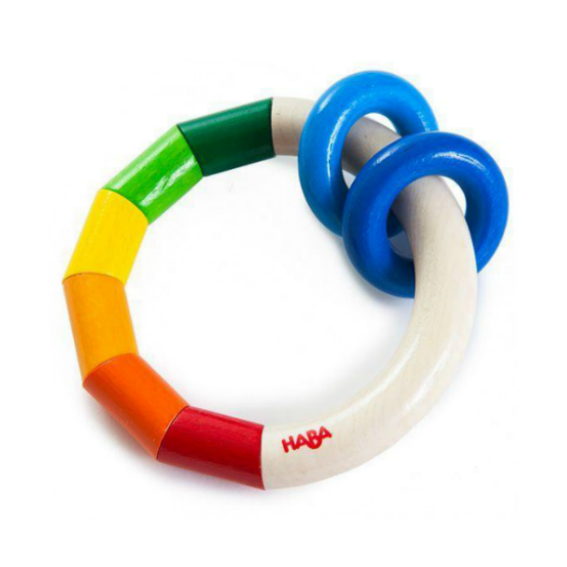How To Help Children Be taught to Administration Their Emotions
Positive, in any case we now have to say No typically! Dad and mother should set limits all day, day-after-day. Nonetheless we’re saying No to habits, not emotions. Children can’t run into the street, throw their meals at each other, or pee on their baby brother. Nonetheless they’re allowed to actually really feel and particular their anger, disappointment, and disappointment.
All
of us concern about our youngsters learning to manage their emotions. In the end, it’s emotions that so usually get us off observe and into trouble. Nonetheless setting limits on kids’s habits doesn’t indicate we now have to set limits on what they actually really feel. In precise truth, as soon as we don’t “allow” our child to get upset,
we’re unwittingly making it extra sturdy for our child to be taught to deal with his emotions.
That’s on account of you can’t actually maintain your child from getting upset, whether or not or not you “allow” it or not. Telling your child to not cry is not going to maintain him from
being upset; it could possibly merely give him the message that there’s one factor scary or shameful about his emotions, so he’d increased try to hide them. Sadly,
when folks repress emotion, these emotions aren’t beneath conscious administration. So that they arrive out un-regulated, inflicting the child to lash out or act
out.
It’s that dysregulation that scares mom and father, when our child seems totally uncontrolled. Nonetheless kids don’t get dysregulated on account of we “allow” their emotions. In precise truth, kids (and adults) reliably escalate into dysregulation as soon as they don’t really feel heard. So as soon as we inform any person to not “get upset” we’re capable of rely on them turning into further upset.
One other excuse kids get dysregulated is all these events as soon as they actually really feel an emotion nevertheless have gotten the message that they “aren’t allowed” to actually really feel such an element. So that they try to push the feeling down. That
could match throughout the second, however it makes kids tense and anxious and demanding and whiney. And eventually, these repressed feelings which could be not beneath
conscious administration bubble as a lot as the ground and explode, resulting in habits that is rather more uncontrolled.
So denying emotion or making ourselves mistaken for having emotions doesn’t help us administration emotions. Right here is how a toddler actually learns to manage his emotions.
Uncover that every one the movement objects start with what “WE” — the mom and father — do.
1. We model self-regulation.
That suggests that we resist our private little “tantrums” resembling yelling. As an alternative, we take a father or mom time-out to calm ourselves down. If our child is simply too youthful
for us to depart the room, we do as so much processing at completely different events as we’re capable of, so we’re capable of preserve further calm whereas we’re with our youngsters. Then, throughout the second,
we sluggish points down and take responsibility for the best way we particular our emotions. In the end, kids be taught from us. After we yell, they be taught to yell.
After we talk respectfully, they be taught to speak respectfully. Every time you model in entrance of your child the suitable technique to stop your self from showing badly when
you’re offended, your child is learning emotional regulation.
Please remember that I’m not suggesting that it’s essential “stuff” or repress your emotions. That can merely make them extra sturdy to manage! I’m suggesting that
you cope with emotions responsibly, by noticing the feelings and tolerating them — nevertheless NOT taking movement. Every time you do that, you’re strengthening
your neural networks to deal with your emotions. That’s exactly what we’re making an attempt to point out our children to do. And naturally, we ought to be the operate fashions.
(Not good however? Do not fret. Most of us are nonetheless engaged on this. In precise truth, it’s the work of a lifetime. Merely maintain taking steps within the appropriate path.)
2. We prioritize a deep nurturing connection.
Infants develop the neural wiring to appease themselves by being soothed by their mom and father. Nonetheless even older kids should actually really feel associated to us or they can’t
regulate themselves emotionally. After we uncover our child getting dysregulated, an essential issue we’re capable of do (after calming ourselves) is to
try to reconnect. When kids actually really feel that we’re on their side, even when we now have to say no to them, they WANT to cooperate — so that warmth, delighted connection
eliminates numerous “misbehavior.”
3. We accept our child’s feelings, even as soon as they’re inconvenient.
“Oh, Sweetie, I do know that’s disappointing….I’m so sorry points didn’t work out the best way during which you wished.” When empathy turns into our “go to” response,
our child feels heard, so they don’t should escalate. They be taught that emotions may not likely really feel good, nevertheless they are not dangerous, in order that they accept and course of them as they arrive up, in its place of stuffing
them, the place they solely get uglier. The child is conscious of that any person understands, so she doesn’t should yell to be heard. And when our help helps her be taught that
she’s going to dwell by unhealthy feelings and the photo voltaic will come out the next day, she begins to develop resilience.
4. We make it simple to talk about emotions.
Evaluation reveals that kids develop in emotional intelligence as soon as we talk about our private feelings, acknowledge theirs, and marvel aloud about these of various
people: “That little boy throughout the stroller is crying …. I ponder what’s mistaken? What do you suppose he desires?”
Is it important to point out kids phrases for his or her emotions? Positive, it validates their experience and helps them understand others. Nonetheless labeling emotions when
tempers rage merely makes the child actually really feel analyzed, in its place of understood. And when the child is upset, talking of any type takes the child out of his coronary coronary heart and into his head, which makes it extra sturdy
to work by the feelings. As an alternative, in these highly effective moments, give consideration to merely accepting your child’s emotions and offering compassion, even within the occasion you
should limit your child’s actions.
5. We limit our child’s actions as compulsory.
Our objective is to create a safe home for the child to actually really feel their emotions. Nonetheless that doesn’t ever indicate we let him hit us or break points.
Everybody is aware of that kids aren’t however capable of making all their very personal decisions in life, even as soon as they’re contemplating properly. After they’re offended, it is not beautiful
that they do and say points they will be sorry for later. (Don’t you?)
Merely switch away in case your child tries to hit you. If it is important preserve his palms to keep up him from hitting, obtain this, nevertheless maintain that to a minimal. And keep in mind
that rage should actually really feel heard or it escalates. For individuals who can acknowledge that you simply simply see how offended your child is, and empathize with why they’re upset, they
usually is not going to need to level out you the best way upset they’re by hitting.
6. We model restore and care.
Your offended child is not a nasty particular person, nevertheless a hurting, very youthful human. When kids aren’t controlling their emotions, it’s on account of they can’t, at that second.
This is not the time to point out him to not be rude. For individuals who can preserve compassionate, your child will actually really feel safe adequate to flooring, actually really feel and particular the
tears and fears which could be driving his anger and showing out. For individuals who could assist him actually really feel safe adequate to actually actually really feel these tears and fears, they will evaporate
— and the anger and showing out will vanish, too.
Later, after everybody appears to be calm, it always helps to talk collectively together with your child about what occurred — to not criticize or lecture, nevertheless to apologize, empathize
and restore connection: “Now we have been all so upset that we started yelling. Nonetheless that’s no strategy to work points out with any person you are eager on. I’m sorry I misplaced my temper. I do know you possibly can have been so upset, too, to say/do these points. I’m able to listen now to what you have been upset about.”
Mustn’t you inform your child they are not allowed to yell at you, or regardless of they did that upset you? In truth! Nonetheless they can’t take that in until they
actually really feel heard. So wait until you first listen and provide understanding. Then, you might say “I see why you’ve got been so upset that you simply simply yelled at me. Nonetheless you
know that you simply simply certainly not should yell to get my consideration. I will always listen and try to help.” From this place of mutual understanding, your child will
just about undoubtedly apologize, and they’re going to be far more motivated ultimately to particular themselves with out yelling.
7. We info habits nevertheless resist the urge to punish.
Spankings, time outs, penalties, and shaming don’t give kids the help they need with their emotions. In precise truth, the message kids get is that the emotions
that drove them to “misbehave” are unhealthy. So kids try to repress these emotions, and their emotional backpack will get stuffed rather more stuffed with unhealthy feelings.
That’s one in every of many causes that punishment actually ends in further misbehavior — these feelings maintain effervescent up out of the emotional backpack wanting
for therapeutic, and your child lashes out on account of the emotions actually really feel so scary. As an alternative of punishing, help your child carry on observe with loving steering and emotion educating to help them course of emotions.
8. We act identical to the grown-up.
After we aren’t able to take price in our dwelling, setting relevant limits and making a optimistic tone, kids don’t really feel safe. They concern that we aren’t
able to meet their emotional desires, so they start working laborious to take price themselves. That’s one objective kids get bossy and demanding. Even
worse for his or her progress, they stop coming to us with their tears and fears. They don’t perception us with their vulnerability. They have to maintain their
defenses up, in order that they develop a chip on their shoulder.
And which implies they can’t relax and cope with points that scare them (in every other case generally called age-appropriate developmental duties), like learning to work out conflicts
with mates and taking the hazard of making an attempt new points.
The reply is to this “perspective” is to help the child actually really feel safe, by committing to being a relaxed, emotionally generous father or mom who models empathic limits
and fashions emotional intelligence.
Children who’re parented this fashion be taught to “administration” their emotions on account of they’ve a healthful emotional life, not on account of they’ve been knowledgeable to not likely really feel,
or punished or shamed for his or her feelings. They be taught that:
- Emotions aren’t unhealthy, they’re merely part of the richness of being human.Everytime you allow your self to actually really feel, the emotions begin to fade away.
- We don’t usually have a variety about what we actually really feel, nevertheless we always have a variety about how we choose to behave.
Does this demand numerous the daddy or mom? Utterly! Nonetheless what increased motivation to develop than your love in your child?
And within the occasion you are nonetheless engaged on regulating your self, you may be glad to hearken to that your kids will just about undoubtedly be increased at managing their emotions than
you are. Why? You might be doing the laborious work now to help them learn how. And quite a lot of the work — shock! — is in your self.






